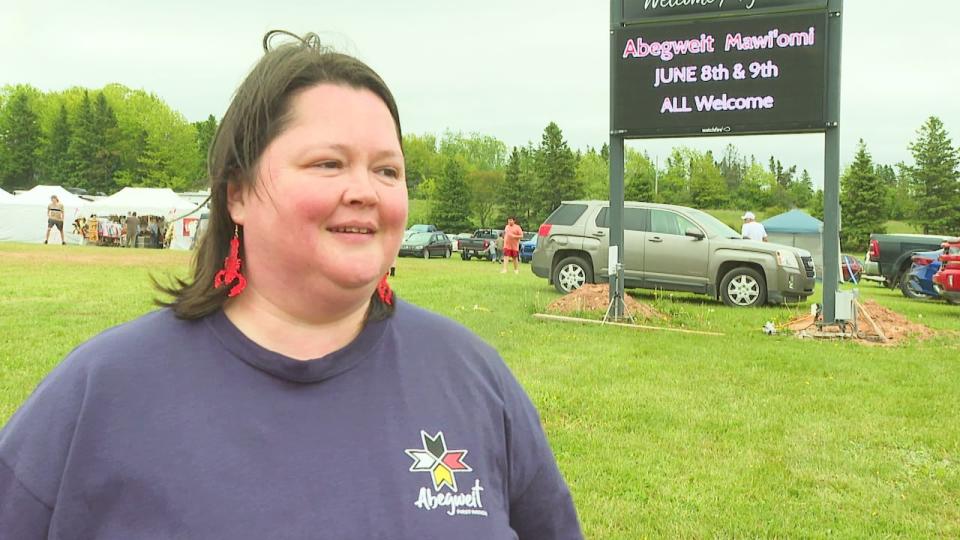'See you again': Why there are no goodbyes in Mi'kmaw culture
When the dancing, drumming and singing came to an end Sunday, the hundreds who gathered to celebrate Mi'kmaw culture hugged and went their separate ways.
But they didn't say goodbye.
At least not in their own language, said Tania Knockwood. There's not even a word for goodbye.
"We only have, 'We'll see you again.' Because in any way or form, the last time we see you, we will see you again. No matter what form that is."
That spirit of enduring togetherness and community was in full display this weekend as Abegweit First Nation hosted the first mawi'omi, or powwow, of the season.
Chief Roddy (Junior) Gould said they tried to do as much of the celebration as possible in the Mi'kmaw language.

"We want to make sure that we reassert our language, our traditions and our values. So all of the entry songs and honour songs that are sung today are to the best of our ability sung in our language."
Knockwood was helping to translate. She said there are not many young people fluent in the Mi'kmaw language, and it was an honour to hear them say words like kwe', which means hello, wela'lioq, which means thank you, and nmu'ltes, which means see you again.
"It's the most joyous. My heart is bigger, it's full, it's more full," she said. "And knowing that we are a part of that revitalization is life-fulfilling, I would say."

Sophia Bourque, 11, said she learns more at every celebration, and hopes to one day pass that knowledge down to the next generation.
"Our language and Indigenous culture, it's very interesting because all the words are describing things, instead of just having a word to call something."
Bourque, a dancer, said it was "very powerful" to be able to display the Mi'kmaw culture.
"It's very beautiful. All the teachings are, like, there's a lot behind it. The stories are incredible and they just make sense. And being a dancer, it's fun to meet new other dancers and learn new dance moves and just learn from everyone."


